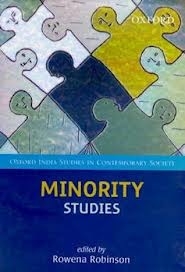The idea of ‘minority’ and ‘minority rights’ has been a matter of intense debates, ever since the modern nation-states came into existence. Such debates have, however, acquired greater salience in democratic states, for ‘democracy, particularly liberal democracy’, as Charles Taylor reasons, ‘is a great philosophy of inclusion’. And yet, democratic states tend to reflect in their activities, though in varying degrees, a majoritarian mindset that seeks to exclude minority groups (ethnic, religious, linguistic and so on) or to assign them inferior position through various ways and mechanisms. After all, democracy in practice is what the majority says it is.
In spite of all this, the idea of multiculturalism has gained wider currency in recent decades. With this, the debates on minority rights have acquired renewed vigour and attracted unprecedented attention. Undeniably, the idea of multiculturalism offers spaces for optimism as it goes beyond mere coexistence of different cultures within nation-states, but it is laced with too many theoretical and practical limitations.

